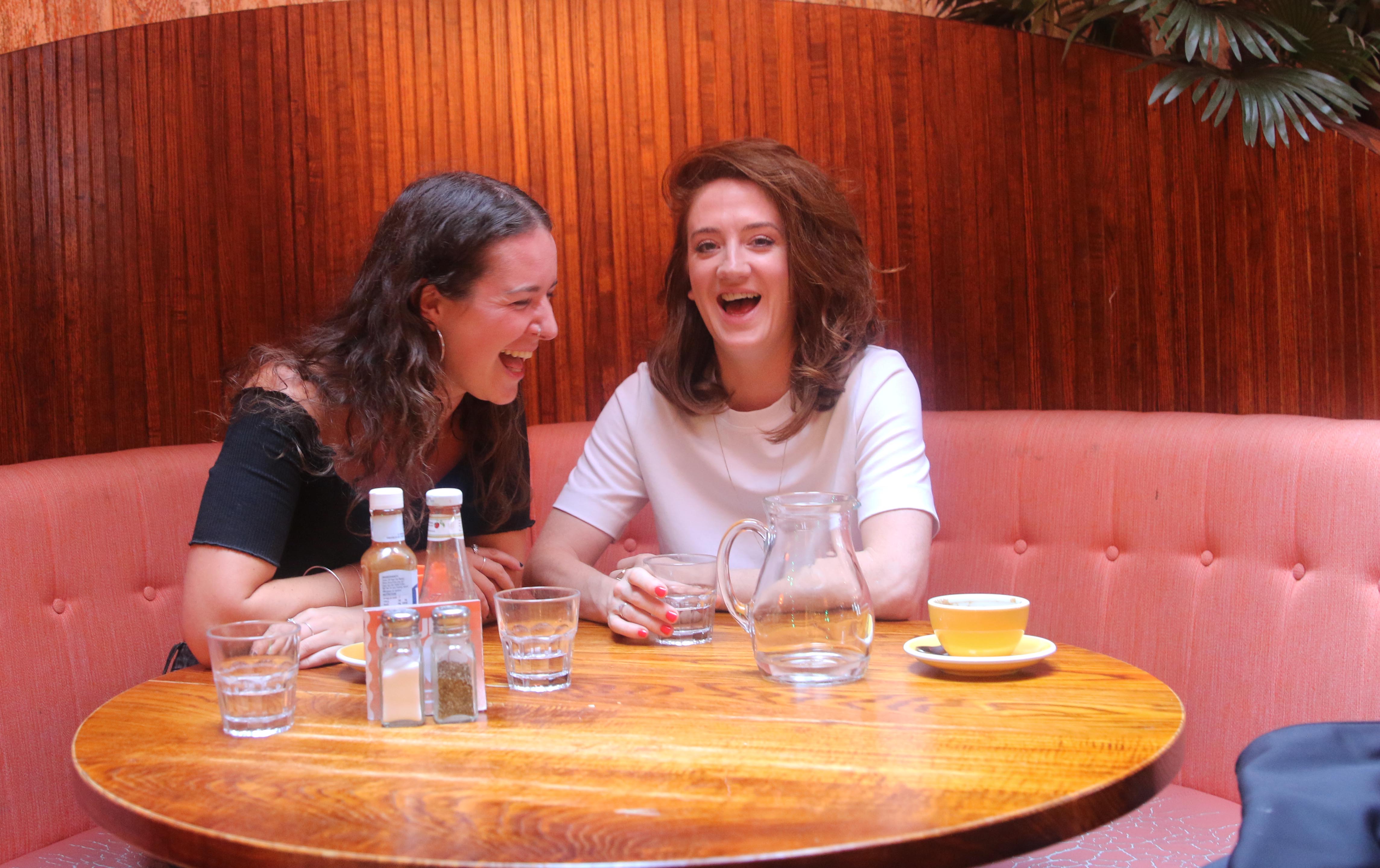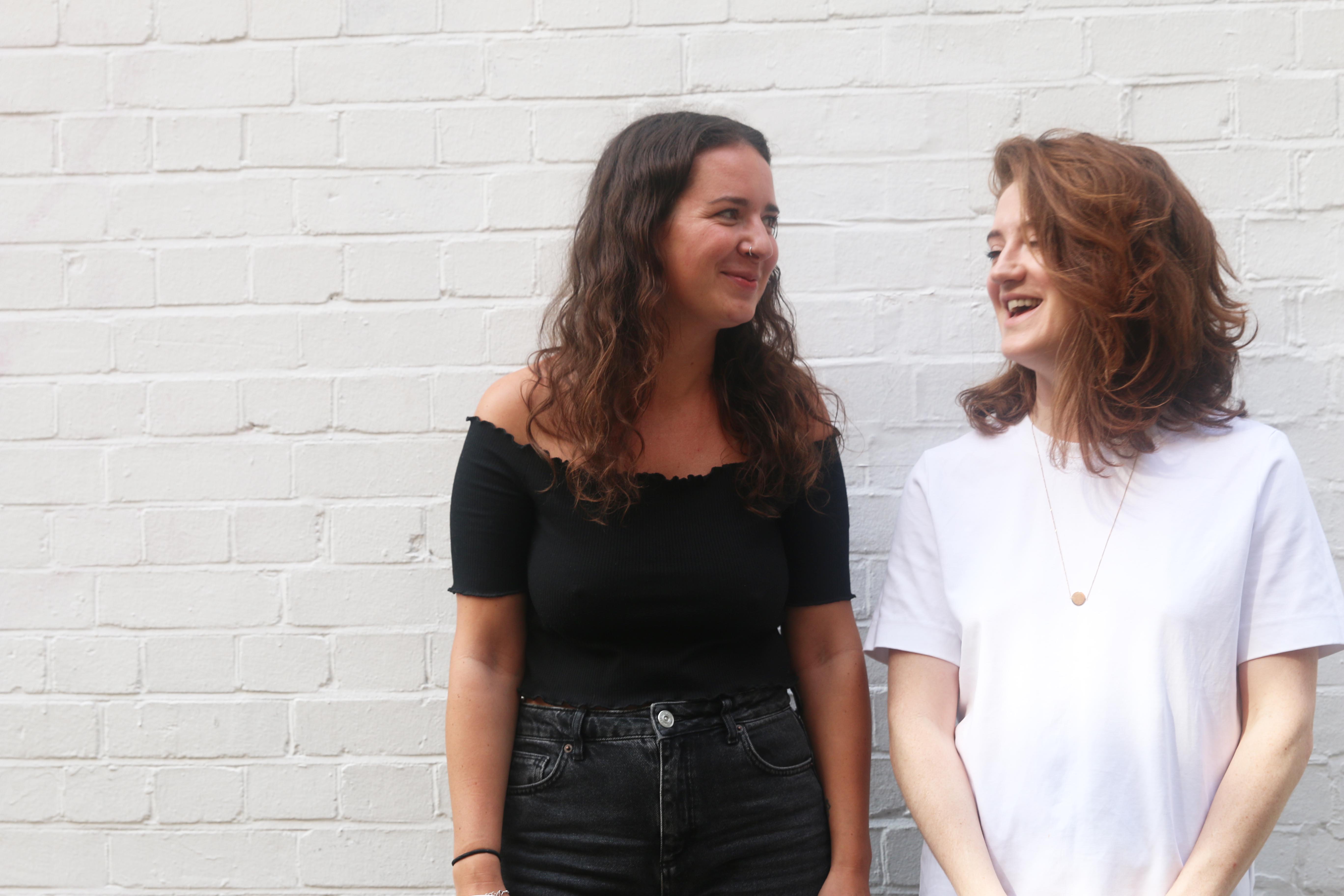If you’ve ever worked in a bar or restaurant, you’ll know how diverse the workforce can be. There’s Davy from Stoke who’s about to release an EP but is “just waiting for his mate to produce a grunge sample,” the Italian student who works shifts between lectures and is unbelievably enthusiastic about front-of-house, and a 42-year-old named Paulo, who has two film studies degrees and sells bespoke knives on Etsy.
Barriers to entry in hospitality jobs are low, meaning almost anyone can serve you pasta, craft your flat white, or welcome you into a restaurant.
Videos by VICE
When the industry is so inclusive, it seems absurd that forward-thinking, socially conscious actions aren’t at its forefront. Which is what Lucy Taylor and Eva Arnaiz are trying to change.

Both Taylor and Arnaiz have been in hospitality for years and worked their way up to roles in social responsibility. Arnaiz is head of charities for The Breakfast Club, while Taylor heads up social recruitment in Vietnamese restaurant chain Pho. Both believe that restaurants can be more socially conscious when recruiting staff and utilising their space, beyond chucking money at charities or hosting the occasional fundraiser dinner. It’s a change they see benefiting not just the hospitality industry, which desperately needs new ideas to combat a looming staff shortage crisis, but also wider societal issues like rough sleeping, poverty, and loneliness among elderly people.
With all this in mind, Arnaiz started Good Day Productions at the end of 2017 as part of her role with The Breakfast Club. The platform aims to teach restaurants, cafe, and bars how to go from serving drinks to tackling big social issues (and still serving drinks). Polly O’Flynn came on board as creative director, and Luke Campbell of ethical drinks brand Karma Cola as director of development. Taylor joined later and helped organise the platform’s recent event on socially inclusive recruitment.
“The thing about social recruitment is that it has a business need,” says Taylor as we sit down for coffee in East London, “which is why [Pho] will support doing it, but it’s also about the fact that there are so many people out there who need a job, and you can give someone the opportunity to change their life.”
“Fundamentally, we’re just about changing hospitality as a business to be socially focused.”
Arnaiz agrees. “We both did it in a similar way where we both hounded our directors and were like, ‘let’s do more,’ and luckily for us, we were given a chance to do that. Not everyone has that, but what we’ve found is that there are business benefits from being more socially conscious. For example, landlords—who are pretty evil—are coming to us saying we’ll reduce your rent rates because you’re doing good in the community.”
The two met at an event last year. Taylor had been helping Pho work with a homeless charity to recruit new staff, offering support and flexible working hours while Arnaiz was organising elderly LGBT meetups at The Breakfast Club. They got chatting, realised they had a lot in common, and decided to start something together.
“I wanted to create something that was very different from the corporate matchmaking,” says Arnaiz, a little hungover after a work party the night before. “I decided to set up this platform [Good Day Productions] in December last year, to find out what others were doing and to share practice, inspire others, and create a bit of a movement. In the hospitality industry specifically, because it’s an industry that interacts with strangers on a daily basis.”
While Good Day Productions began as an outreach project for The Breakfast Club, Arnaiz and Taylor have now launched the platform independently. They’re currently running a social media campaign called “100 good buys,” which promotes products from social enterprises, including a gin company whose profits support disadvantaged young adults and a coffee shop that trains ex-offenders. There are plans for a takeover of Spitalfields Market to showcase these products and provide work experience for women who have gained asylum in the UK. Taylor and Arnaiz are not messing around.
The core of Good Day Productions, however, is events for hospitality staff. Every quarter, Arnaiz and Taylor host talks and workshops on how to make practical changes in restaurants, focusing on socially inclusive recruitment and offering charities venue space.
“We want to show them how easy it is to make a difference,” says Arnaiz. “Often people are a bit scared to approach a group they haven’t had much contact, like ex-offenders for example, but we can say, ‘Look we’re already doing this, come and get involved and see how easy it is, and what impact it can have.’”
“It’s about not throwing money at problems,” she continues, “but coming up with creative solutions, with the charities.”
Good Day Productions sees charities as organisations to foster relationships with, not just for HR box-ticking.
“It’s a difficult time for the industry, we know that,” says Arnaiz, “but at the time, when I started, we had quite a lot of money, and it’s very easy for people to just donate a bunch of money and that’s it done. [Now], it’s about educating people, and changing what people’s impressions were of social action.”
“Fundamentally,” adds Taylor, “we’re just about changing hospitality as a business to be socially focused.”
It seems like the right time for it, too. From the phone case that I spent £27 on because it’s made of recycled plastic to the huge rise in veganism across the UK, ethically conscious consumerism is clearly growing.
What do Taylor and Arnaiz make of this?
“A few brands have done it well for ages, people like Pret and things have their different schemes,” Arnaiz tells me. “Now, the ‘term social inclusive recruitment’ or any kind of social action is just more at the forefront. So many brands are talking about it.”

“It typically comes after points of austerity, I think,” says Taylor. “Creative industries and people get frustrated and want to use their creativity and do a bit more for the world, and you get political views coming out. The worse everything looks on the political front, the more people are standing up and start to look at ways that they can change it.”
It’s depressing to think about the increasing need for charitable action at this time, particularly from organisations whose main function is to make cheese toasties or serve cocktails. As Arnaiz says to me as I’m leaving, “in an ideal world, there’ll be no need for charities.”
Hopefully, Good Day Productions won’t be around forever. But right now, I’m glad it’s here.




